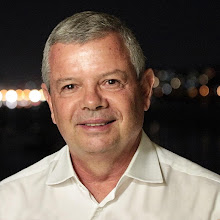Emerging Civil Society Models Point Way to Creating a Resilient Society
Oliver Cann, Associate Director, Communications Department, Tel.: +41 (0)79 799 3405; oliver.cann@weforum.org
New report, The Future Role of Civil Society, highlights key trends and possible trajectories for civil society and its relationship with other sectors through to 2030
Technological and demographic change mean increasing pressure on institutions to deliver social justice and greater accountability
Both emerging and traditional actors should collaborate across all sectors and experiment with new models of engagement, while maintaining their valuable role as “constructive challenger” of the status quo.
Download the report: http://wef.ch/civilsociety13
Davos-Klosters, Switzerland, 22 January 2013 – The World Economic Forum publishes today The Future Role of Civil Society, which highlights key trends, critical uncertainties and strategic concerns for civil society and its relationship with other sectors through to 2030.
With the recent rise in civilian protest and online activity, civil society today is more important and influential than at almost any point in history. Technology and demographics have created more aware, better connected and increasingly educated populations often dominated by younger cohorts. These populations are demanding social justice and accountability from all institutions in a time of economic and political uncertainty.
At the same time, the role of business has shifted, with more and more corporate entities engaging with societal and environmental challenges of local and global importance. These changes demand new models of engagement for civil society, business, government and international organizations.
The report highlights six priority areas for civil society organizations when building long-term strategies. These are:
- The level and sources of funding for societal challenges
- The social and political influence of increasing access to technology
- The extent and type of citizen engagement with societal challenges
- The state of global and regional geopolitical stability and global integration of markets
- The effect of environmental degradation and climate change on populations
- The level of trust in governments, businesses and international organizations
The opportunity for leaders across civil society, business, government and international organizations is to harness these uncertainties and shifts to design new solutions to collective challenges. Civil society can play a particularly powerful role in this process as an enabler and constructive challenger. As an enabler, civil society can create the political and social space for collaborations that are based on trust, service and the collective good. As a constructive challenger, both traditional and emerging civil society organizations can hold themselves and other stakeholders to the highest possible levels of accountability, retaining their role as the voice for the under-represented and advocate for transformative social change.
“Civil society has a vital role to play, both independently and as an enabler of other sectors. As all stakeholders respond to a turbulent global environment, there are opportunities available for leaders to work together in new ways to co-create a resilient society,” said Nicholas Davis, Director, Head of Constituents and Strategic Initiatives, World Economic Forum.
The report’s outcomes are based on in-depth research and interactive discussions with more than 200 civil society stakeholders as well as industry, policy and academic experts over the past nine months. This material was used to create four scenarios to challenge thinking about the shifting context and role for civil society in the coming two decades:
- Mad Max is a world characterized by international and national conflict, where governments exert strong security controls on both business and society. Levels of funding for societal and development challenges are limited.
- Transparently Blurred posits a scenario where economic growth is relatively high over the period 2020-2030 and where the government and private sector are both deeply engaged in tackling societal challenges. Access to data, technology and rigorous monitoring are the hallmarks of a revolution in both economic activity and social development.
- Turbulence and Trust Deficits depicts a chaotic world where trust is a scarce commodity. Yet, thanks to the possibilities created by the rise of the networked society, there is a significant latent desire for social engagement by citizens, particularly at the local level.
- Privatized World is one where many governments are seen to have failed, inequality is extreme and corporations play the most important role in society as the main providers of social services.
The scenarios aim to challenge decision-makers’ assumptions about civil society’s current and future context in order to make more informed decisions.
Notes to Editors
More information about the Annual Meeting 2013 is available at http://wef.ch/davos2013
View the best photographs from the Annual Meeting on Flickr at http://wef.ch/davos13pix
Free media access to the Forum press photo archive Swiss-Image at http://wef.ch/pics
Watch live webcasts of sessions at http://wef.ch/live and on demand at http://wef.ch/davos13video
Watch opinions and analysis of key sessions at http://wef.ch/AM13insights
Watch the sessions on demand on YouTube at http://wef.ch/youtube or http://wef.ch/youku
Become a fan of the Forum on Facebook at http://wef.ch/facebook
Read the summaries of sessions at http://wef.ch/davos13sessions
Follow the Forum on Twitter at http://wef.ch/twitter and http://wef.ch/livetweet (hashtag #WEF)
Read the Forum:Blog at http://wef.ch/blog
Follow the Forum on Google+ at http://wef.ch/gplus
The Forum Media App is available here http://wef.ch/publicapps
Fonte: World Economic Forum





















Nenhum comentário:
Postar um comentário
Contribua. Deixe aqui a sua crítica, comentário ou complementação ao conteúdo da mensagem postada no Blog do Axel Grael. Obrigado.